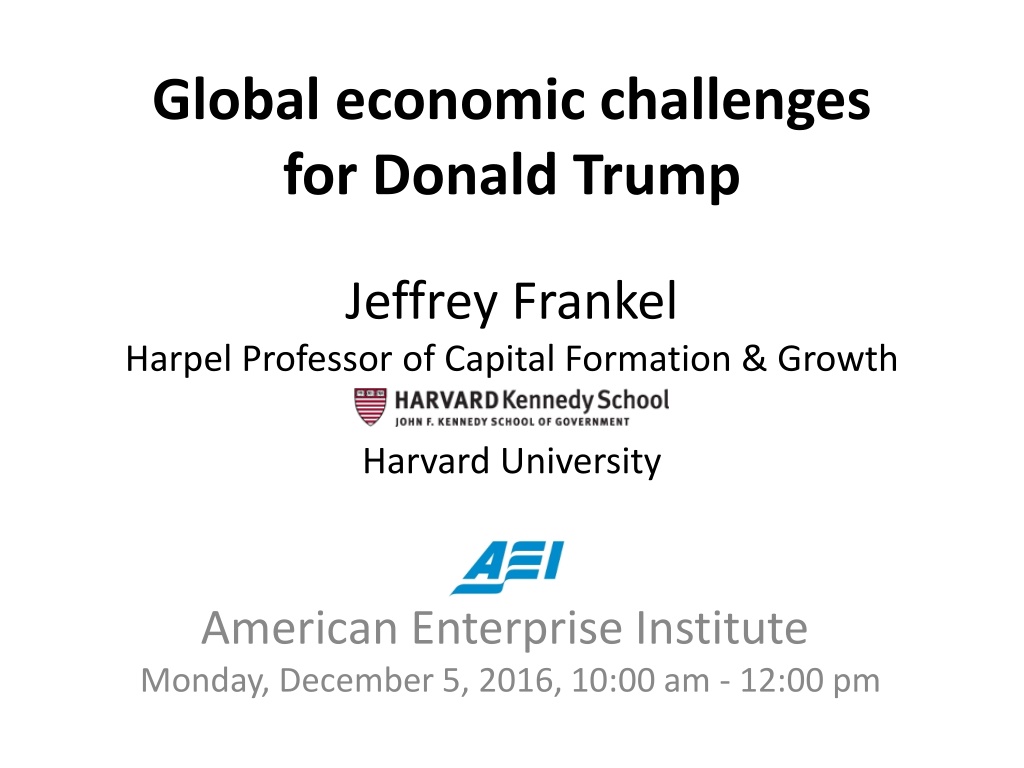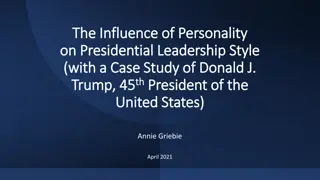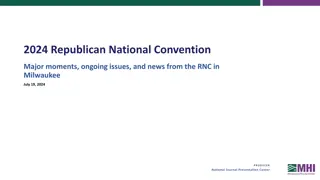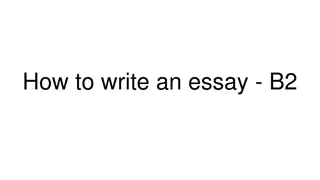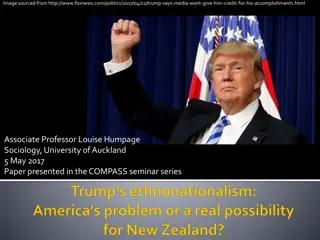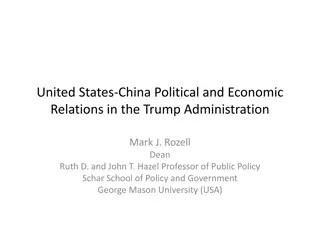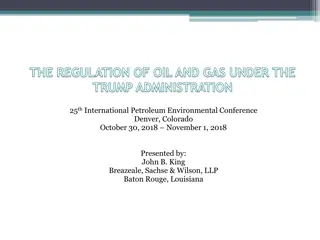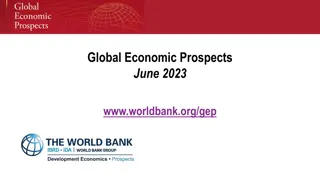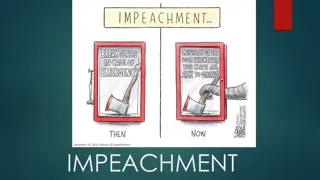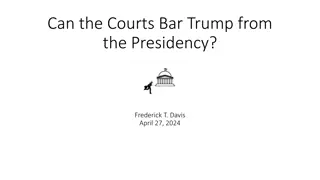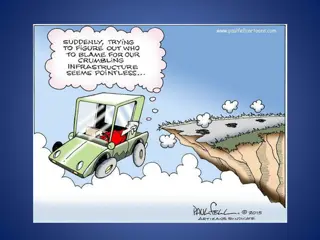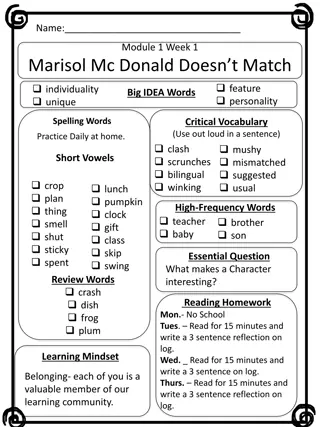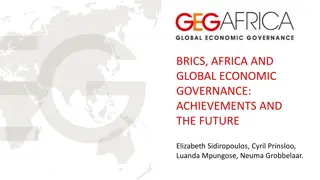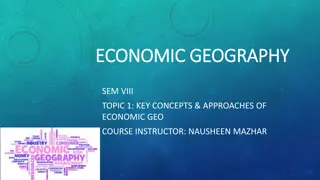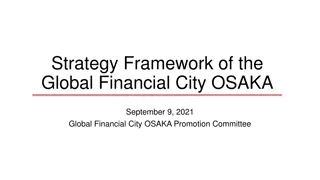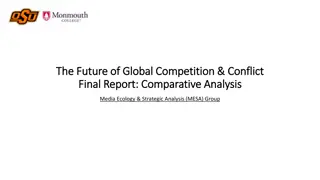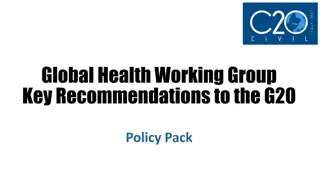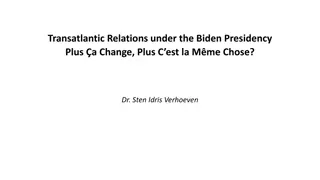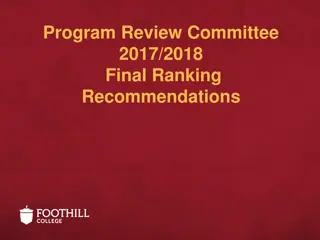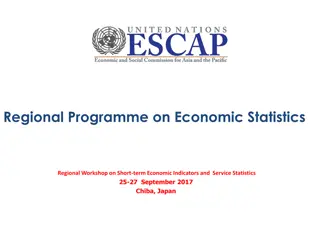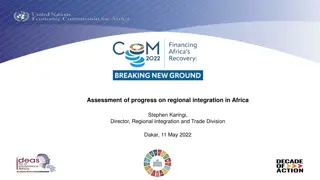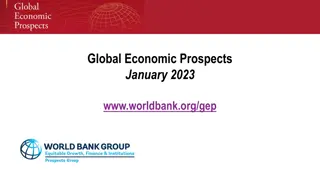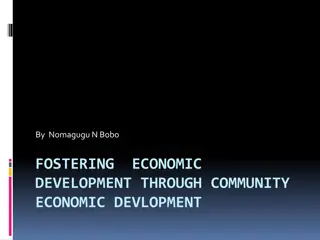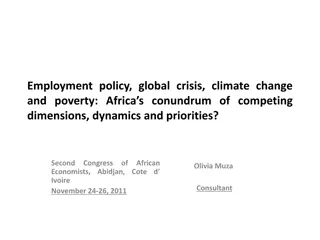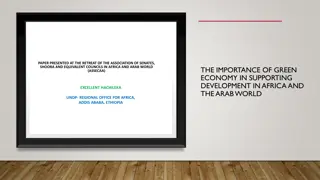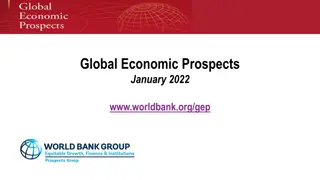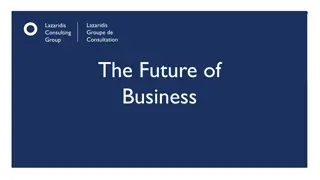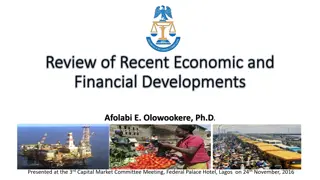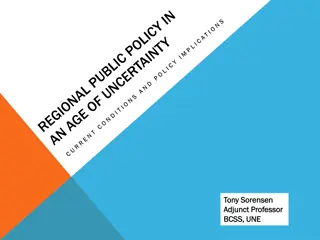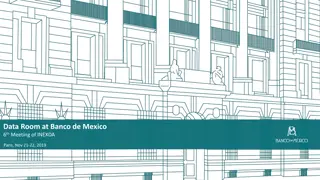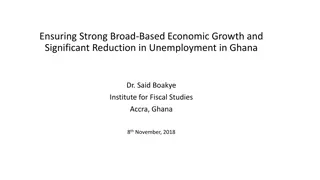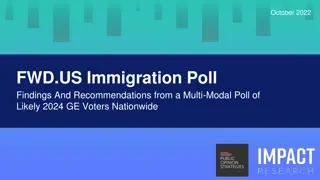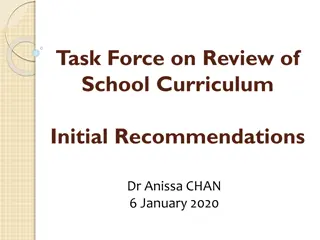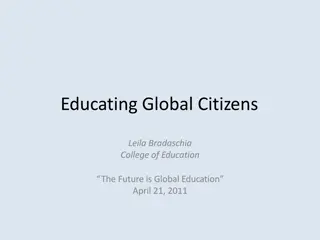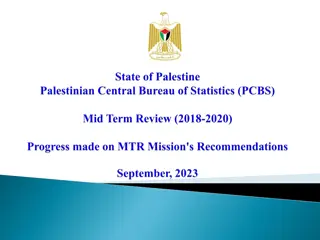Global Economic Challenges for Donald Trump: Expert Analysis and Recommendations
Challenges in international trade, US deficit, and Chinese exchange rate confront the incoming Trump administration. Despite campaign promises, the reality of China's currency manipulation and trade balance dynamics pose significant obstacles. Policy shifts towards fiscal expansion through tax cuts and increased spending may impact trade deficits in unpredictable ways.
Download Presentation

Please find below an Image/Link to download the presentation.
The content on the website is provided AS IS for your information and personal use only. It may not be sold, licensed, or shared on other websites without obtaining consent from the author. Download presentation by click this link. If you encounter any issues during the download, it is possible that the publisher has removed the file from their server.
E N D
Presentation Transcript
Global economic challenges for Donald Trump Jeffrey Frankel Harpel Professor of Capital Formation & Growth Harvard University American Enterprise Institute Monday, December 5, 2016, 10:00 am - 12:00 pm
Quadrennial panels offer Advice for the new Administration I feel the need this year to acknowledge that advice from us experts and elites is unwanted by Mr. Trump and his supporters. Just to show that we understand. That said, the incoming Administration will encounter international events and constraints that it did not figure on in the campaign. It is a common pattern, though much more extreme this time.
International trade, the US deficit, and the Chinese exchange rate were big issues in the campaign. Let s start with Mr. Trump s promise immediately to name China a manipulator of its currency. He may have to confront the reality that if China moved to a freely market-determined exchange rate, as he & other US politicians have urged, the RMB would weaken, not strengthen: For more than two years, the PBoC has been intervening to fight RMB depreciation, not to encourage it. It has sold dollars and bought RMB, not the other way around. [See graph] Similarly, China has recently tightened controls on capital outflows, not inflows. If it stops, the RMB will weaken further, which would help China s net exports to the US, not reduce them.
Since mid-2014, the Peoples Bank of China has been selling foreign exchange reserves and buying RMB, to resist depreciation, not the other way around as it had over the preceding 10 years. China s reserves peaked at $3,993 billion in June of 2014. Since then it has spent $872 billion defending the RMB (as of Oct. 2016).
The US trade balance Little-known fact: The US trade deficit has been narrowing for the last 10 years as a share of GDP [See graph.] Mr. Trump s policies are likely to put the trade deficit back on a deteriorating path, even if he doesn t stop China from intervening in the foreign exchange market.
The US trade deficit as a share of GDP has narrowed over the last ten years. 6
Mr. Trumps policies are likely to set the trade deficit back on a deteriorating path. Plans for fiscal expansion: massive tax cuts and spending increases including military and infrastructure investment. It is hard to predict the carryover from campaign statements to actual policies. But Congress is likely to support this sort of fiscal expansion. It would repeat what Ronald Reagan and George W. Bush did. The budget deficit would reduce national savings, which would worsen the current account deficit. An example of the twin deficits we saw under Reagan & Bush.
What causal channel would widen the trade deficit? Fiscal expansion would put upward pressure on interest rates, especially since we are already essentially at full employment. The Fed had already been expected to raise interest rates Dec. 14. Recent developments augur more interest rate hikes in 2017 & 2018. The new Administration will probably oppose the increases notwithstanding that the candidate has attacked the Fed for keeping interest rates too low. One hopes the Fed s independence will hold, as it did under Volcker. That will also put upward pressure on the dollar: Because higher interest rates attract a capital inflow, as in the classic Mundell-Fleming model (BD => NS => i rate => $ ) Mr. Trump is doing more to depreciate other currencies against the $ than currency manipulation does. Indeed the increases in US interest rates and the value of the dollar are already underway, ever since the election. [See graph.]
After the election the dollar appreciated against a broad set of currencies. Nov. 9, 2016 Nov. 8: 122.8 Nov. 25:127.9 https://fred.stlouisfed.org/series/TWEXB
How does the importance of free trade fit in and can the US continue its leadership in promoting trade? In the long run, a reversal of US-led globalization will damage both our economy & our geopolitical position. Would a sharp increase in import tariffs, even if inconsistent with our international obligations, at least improve the trade balance? It is possible, in the short term. But even then, at full employment it would not much boost output or jobs. Moreover the fall in imports is likely to be offset by a fall in exports: If Mexicans income falls, their imports from us will fall. If our inputs of labor-intensive auto parts from Mexico fall, our exports of finished autos may fall. If Mexico retaliates against our tariffs by raising its own, as it is entitled to do, our exports to it will fall. The net effect depends on the macroeconomics already considered: a fiscal expansion would likely to worsen the trade balance.
Global economic challenges for Donald Trump Jeffrey Frankel
Appendix: The big improvement the trade balance came in the recession of 2007-09. FRED Graph 12
